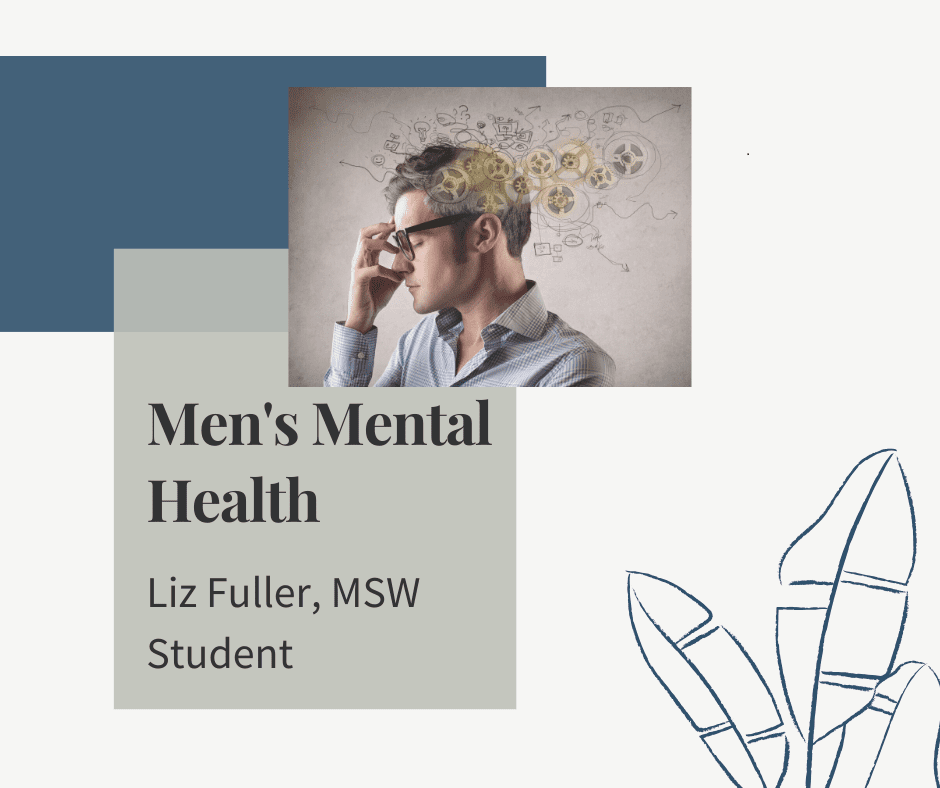
Posted 4 years ago
Men’s Mental Health
In honor of Men’s Mental Health Month, we are taking a look at men and the unique challenges they may face. The most common mental health challenges men face are depression, bipolar disorder, schizophrenia, and eating orders. Additionally, social isolation, substance abuse, military-related trauma, genetic predisposition, unemployment put men at higher risk for suicide. Despite these challenges, research has shown that men are less likely than women to seek help due to social norms, unwillingness to talk, and downplaying symptoms.
Signs might look different for men’s mental health especially when experiencing emotional distress. Common signs and symptom
Social connections and strong support networks are important to the well being and mental health of both men and women. Social connections and support can be considered in two difference ways. One is emotional support such as providing empathy for a friend as he or she endures a crisis. The other is instrumental support such as helping a friend move furniture into their new home. Men place a high emphasis on building and maintaining instrumental (or practical) support. Conversely, men place a lower emphasis on building and utilizing emotional support systems, which can lead to feelings of isolation, anxiety, and depression. To address feelings of isolation, men must make time to reach out to friends and relatives by phone, by joining an online support group, or by starting a hobby that allows them to connect with others.
Taking time to start a conversation with another person about mental wellness takes bravery, but it could save a life. During Men’s Mental Health Month and beyond, take time to reach out to others. Don’t hesitate to seek help for yourself or assist another in locating a professional therapist by utilizing the search function at pychologytoday.com.
Feel free to call these hotlines if you need to speak with someone:
Crisis Line 800-631-1314
Warm Line 602-347-1100
Current Ironwood Cancer and Research patients receiving treatment can contact the Social Work Department to discuss counseling services @ 480-314-6660.
Ironwood Integrative Services provides a variety of online support group during this pandemic. See our Integrative Services calendar on our website for a scheduled on the variety of groups offered.
About Ironwood Cancer & Research Centers
Ironwood Cancer & Research Centers (ICRC) is the largest multi-specialty oncology network in the Greater Metro Phoenix area. They have over 100 medical providers, a robust Integrative Services program and a dedicated clinical research department. Ironwood Cancer & Research Centers has 15 valley locations and five comprehensive cancer care centers that offer a multi-disciplinary approach for expedited personalized patient care. For more information, please visit our website at www.ironwoodcrc.com.
